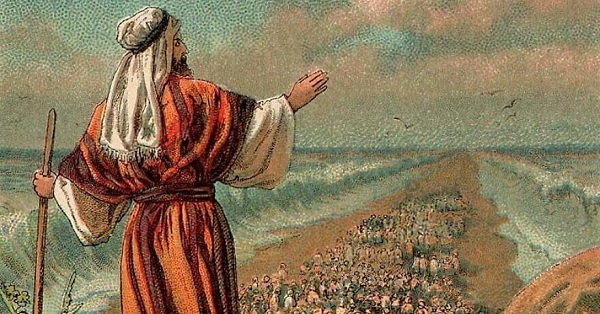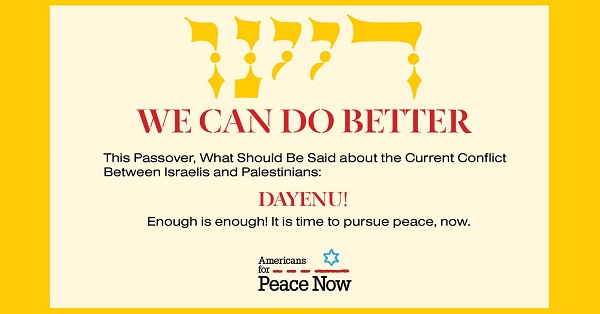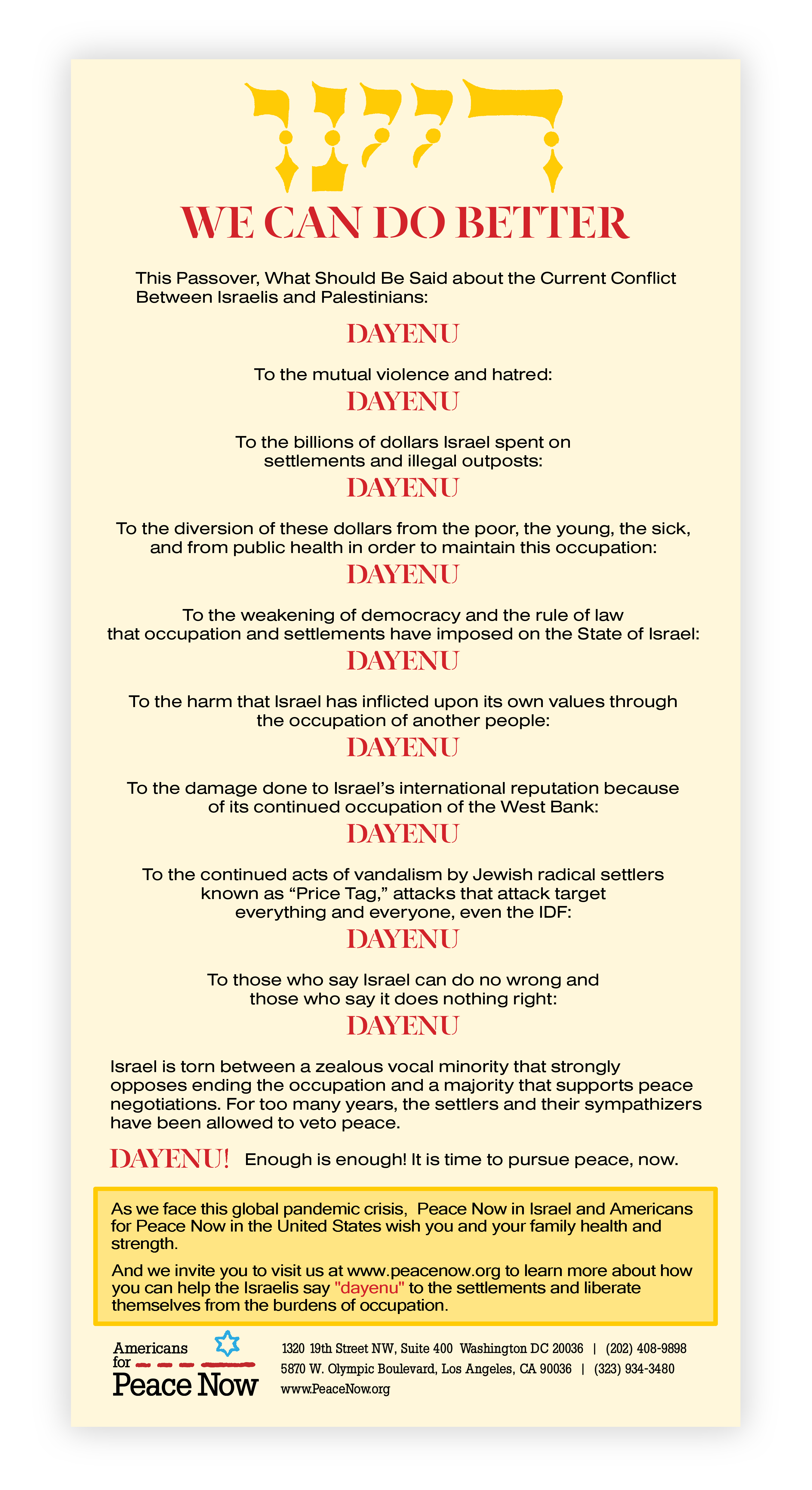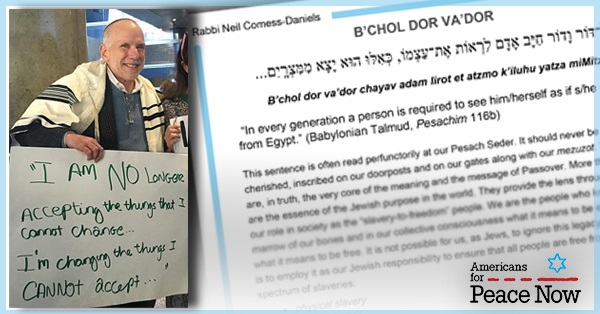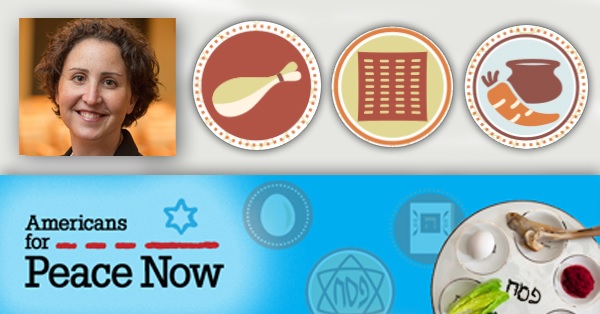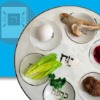This year we are slaves: What can these words mean?
We are slaves...
Because yesterday our people were in slavery, and memory makes yesterday real for us.
We are slaves because today there are still people in chains, around the world, and no one can be truly free while others are in chains.
We are slaves...
Because freedom means more than broken chains.
Where there is poverty and hunger and homelessness, there is no freedom;
Where there is prejudice and bigotry and discrimination, there is no freedom; Where there is violence and torture and terrorism and war, there is no freedom.
And where there are pandemics, there is no freedom.
And where each of us is less than he or she might be, we are not free, not yet.
And who, this year, can be deaf to the continuing oppression of the downtrodden, who can be blind to the burdens and the rigors of the most vulnerable in our own midst?
Who can be indifferent to the victims of violence — our brothers and sisters in Jerusalem and throughout Israel, the Palestinians themselves, our neighbors — children, women — here at home?
Who can ignore the silenced and the intimidated in Syria and in so many other places, the murdered and the plundered and the starved in Yemen, the dying and suffering now even in our own country and worldwide?
So long as such things persist, who among us can say that he or she is free?
Therefore, when we say that this year we are slaves, but that next year we shall be free, we make a pledge.
It is the same pledge we made last year, and the year before that, and we shall make it next year, too, for the road to freedom is not an easy road and we will not soon reach its end, our goal.
Yet it is the road we have chosen, and the choice itself is a foretaste of freedom and it is up to us to make it happen.
Together, we will in health and triumph.
B'CHOL DOR VA'DOR
...בְּכָל־דּוֹר וָדוֹר חַיָּב אָדָם לִרְאוֹת אֶת־עַצְמוֹ, כְּאִלּוּ הוּא 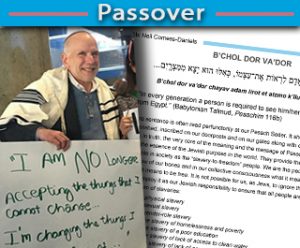 יָצָא מִמִּצְרָֽיִם
יָצָא מִמִּצְרָֽיִם
B’chol dor va’dor chayav adam lirot et atzmo k’iluhu yatza miMitzrayim.
“In every generation a person is required to see him/herself as if s/he came out from Egypt.” (Babylonian Talmud, Pesachim 116b)
This sentence is often read perfunctorily at our Pesach Seder. It should never be – it should be cherished, inscribed on our doorposts and on our gates along with our mezuzot. These words are, in truth, the very core of the meaning and the message of Passover. More than that, they are the essence of the Jewish purpose in the world. They provide the lens through which we see our role in society as the “slavery-to-freedom” people. We are the people who know, in the marrow of our bones and in our collective consciousness what it means to be enslaved – and what it means to be free. It is not possible for us, as Jews, to ignore this legacy. Our only choice is to employ it as our Jewish responsibility to ensure that all people are free from the complete spectrum of slaveries:
-
physical slavery
-
sexual slavery
-
gender-role slavery
-
the slavery of homelessness and poverty
-
the slavery of a poor education
-
the slavery of lack of access to clean water
-
the slavery of lack of access to decent healthcare
-
the slavery of unjust incarceration
-
the slavery of racial and ethnic bigotry
-
the slavery of war
-
the slavery of being designated “illegal”
There are other messages in these words as well that I learned from my teacher, Cantor William Sharlin, who commented on how the phrases of the text are laid out in a musical setting by David Alster-Yardeini:
-
In every generation a person must see him/herself…
-
A call for self-examination that leads to the creation of values and purpose
-
-
…To see him/herself as if…
-
To fully perceive the possibilities and potentials of being human
-
-
…As if s/he came forth from Egypt.
-
To embrace the Egypt experience as our own experience and as a metaphor for our value-laden mandate to ensure that no one is designated as a stranger and oppressed.
-
Rabbi Neil Comess-Daniels

Each year at the Seder, Jews read this line in the Passover Haggadah, "In every generation, a person is obligated to see themselves as if they had left Egypt." This concept reminds us that each year we must approach the haggada with a fresh eye. It demands that we not merely read the words, but understand them afresh. We must have both empathy for what our forefathers and mothers have suffered, and – more importantly – be aware that change is possible, that we are masters of our fate, and that with determination and courage we can accomplish liberation. In our generation, liberating Israelis and Palestinians from the yoke of the occupation, which is subjugating both societies, is imperative. And it is within our reach.
This year, you can add flavor to your seder by sharing this thoughtful reflection by Rabbi Rachael Bregman. Rabbi Bregman has graciously contributed our 18th haggadah insert. In it, she asks us to reflect upon what questions we want to ask this year, offers questions for the table - to be asked when we reach the explanation of the three symbols of Passover: pesach (the offering), matzah and maror.
Since 2001, Americans for Peace Now has asked rabbis from the extended APN family to contribute reflections on the haggadah: that story which has for centuries been understood as the archetype of liberation. Many of us have made these reflections a permanent part of our seder - we hope you will, too. You can find them here.
May we all enjoy a sweet and liberating Passover,

Debra DeLee
President and CEO,
Americans for Peace Now
Submitted by Rabbi Rachael Bregman (2018)
To be read before the three symbols of Passover.
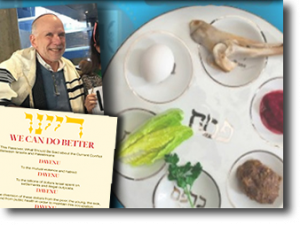 NEW FOR PASSOVER 2020
NEW FOR PASSOVER 2020
APN Supplimental Reading from Rabbi Neil Comess-Daniels - "B'Chol Dor Va'Dor"
APN Special Version of Dayenu - "We Can Do Better"
Special APN Reflection - "This year we are slaves: What can these words mean?"
Since 2001, Americans for Peace Now has asked rabbis from the extended APN family to contribute reflections or readings that can be part of the haggada: that story which has for centuries been understood as the archetype of liberation. Many of us have made these reflections a permanent part of our seder - we hope you will, too.
Click on the highlighted sections of the haggada below, or scroll down to view the full collection.
Kadesh
Urchatz
Karpas
Yachatz (2011),( 2012)
Magid:
The Four Questions
Avadim Hayinu/ We were slaves (2001), (2013)
The Four Children
The Ten Plagues
The Three Symbols of Passover
Rachtzah
Motzi Matzah
Maror
Korech
Shulchan Orech
Tzafun: The Afikomen
Barech:
The Cup of Elijah (2002); (2007);(2009);(2016)
Hallel:
The Fourth Cup
Nirtzah
This year, you can add flavor to your seder by sharing thoughtful reflections from APN rabbis. Add them as enriching reading to your seders. As we gather at the seder table, we see ourselves as if we had left Egypt, and having suffered oppression, we commit ourselves to ensure that others not be oppressed. We know from our own experience that liberation is possible, and in this knowledge, there is hope for peace.
Since 2001, Americans for Peace Now has asked rabbis from the extended APN family to contribute reflections on the haggada: that story which has for centuries been understood as the archetype of liberation. Many of us have made these reflections a permanent part of our seder - we hope you will, too.
May we all enjoy a sweet and liberating Passover.
Submitted by Rabbi Rachael Bregman (2018)
To be read before the three symbols of Passover.
 Rabban Gamliel used to say: Whoever does not discuss the following three things on Passover
has not fulfilled his duty, namely:
Rabban Gamliel used to say: Whoever does not discuss the following three things on Passover
has not fulfilled his duty, namely:
Passover (the Passover-sacrifice),
Matzah (the unleavened bread)
and
Maror (the bitter herbs).
Rabban Gamliel answers the question, "What is required to feel the intensity and the urgency of the seder enough to
get you up out of your seat such that you must respond to injustice in the world?"
His answer: Passover, Matzah and Maror. These are the symbols we investigate to identify the wrongs which must be
set right.
Especially when considering issues around justice in the Palestinian-Israeli conflict, what do these symbols suggest?
Passover: Where are people or their rights being sacrificed for someone else to have power?
Matzah: Also known as the bread of affliction: Where is someone being afflicted or suffering under
hardship imposed upon them so that someone else gains power?
Maror: Where have people’s lives been embittered for the sake of someone else to take away the
power of others for their own gain?
Submitted by Rabbi Marisa Elana James (2017)
To be read after the four children.
When we talk about the future for Israelis and Palestinians, we often have more questions than answers. As we think about the four children of the Seder with their four different ways of trying to learn, this short addition can help us think about what questions we want to ask this year, and how we want to make sure that we're not just getting stuck in what we think we already know. If we are serious about being a positive influence in the work towards a peaceful and just resolution to the conflict, we need to keep asking questions, and recognize that there is always something to learn.
We may each look at the state of the world today and have the same reactions that these children have.
In the spirit of the wise child, we may ask “what are the laws and histories that have shaped the conflicts we face?” We commit to seeking greater wisdom.
In the spirit of the wicked child, we may ask “why should I care about these challenges if they don’t affect me personally?” We commit to seeking stronger connection.
In the spirit of the simple child, we may ask “what is going on, what does it mean, and how did we get here?” We commit to seeking deeper knowledge.
And in the spirit of the child who does not know how to ask, we commit to listening to others as they tell us their stories. We commit to hearing from Israelis and Palestinians, Jews and Christians and Muslims, those who are religious and secular, to begin to see the fullness of the needs for a future of peace and justice for all.
We have these all inside us: we are wise, we are wicked, we are simple, and we are always learning how to listen and learn.
Submitted by Rabbi Michael L. Feshbach (2016)
To be recited as we prepare to open the door for Elijah.
We say that there are four cups of wine at the seder. These are four cups based upon the promises in Exodus: "I will free you from the labors of the Egyptians; I will deliver you; I will redeem you; I will take you to be My people."
But there is, of course, a fifth cup of wine at the Passover seder. And there was a fifth promise. The cup is Elijah’s cup. And the promise was "I will bring you into the land."
But God did bring us into the land. We came, we conquered, we settled... and then we lost and left again. Elijah's cup sees coming into the land as a promise held out for the future. If so, then this cup, this tradition, this seder itself has to have its origin at a time when we were no longer in the land. It had to have taken shape after the destruction of the Second Temple, in the year 70 – or, perhaps, even later, sometime in the second century.
But we are back, now. So if "coming to the land" was the criterion for the fifth cup, should we not now, after 1948, after the declaration of independence of the Third Jewish commonwealth, after the birth of the modern state of Israel, should we not perhaps now drink the fifth cup? Has the promise been fulfilled?
Except that... over time, the cup of Elijah has come to stand for a future hope of something deeper than mere presence. It is about redemption. It is about setting things right, and things being the way they are supposed to be.
And we are not, now, in a place of full redemption. To truly share this cup we must find a way to truly share this space. For we know if the state of Israel is reishit tz’michat ge’ulateinu, the first flowering of redemption, still we know, and sadly we see ... that redemption is not yet complete. "Being there" alone is not enough. The suffering of others, the pain of the Palestinians, has to be part of our world, brought into our minds and our hearts before we can fully taste the sweetness of the final cup. So still we look to a future day, when we will dwell in peace, in two states, and the swords shall be beaten into the plowshares... and none shall make anyone --them or us-- afraid*.
*Micah 4:3-4
"...and they shall beat their swords into plowshares, and their spears into pruninghooks; nation shall not
lift up sword against nation, neither shall they learn war any more. But they shall sit everyone under his
vine and under his fig-tree; and none shall make them afraid..."
Submitted by Rabbi Toba Spitzer (2015)
Rabbi Spitzer is recipient of Americans for Peace Now’s 2015 Elizabeth Wyner Mark Peace
Award
To be read just before the recitation of the ten plagues.
When it comes time to recite the ten plagues, there is a tradition of dipping a bit of wine out of our cups as we say each plague, diminishing our joy just a bit as we recall the difficulties that befell the Egyptians.
This seder tradition calls to mind a famous midrash (rabbinic commentary), on the moment during the Exodus when the Egyptian army was drowning in the sea, just after the Israelites crossed to freedom. The angels turned to one another to sing their daily praises, when God hushed them, saying, "The work of My hands is drowning in the sea, and you would sing songs before Me?!"
While we cannot erase the suffering of the Egyptians from our freedom story, we can acknowledge that a human price was paid. As we recite the plagues, as we drop a bit of wine onto our plates, we are invited to remember that our own freedom--as Americans, as Jews--often comes with a price paid by others. We can take this moment to reflect on the damage done, whether intentional or not, that has allowed us to enjoy our freedom and our privilege.
If I am economically privileged, what is the cost borne by others--in the U.S. and around the world--to allow me my comforts? If I am white, at what cost comes the relative ease with which I move through the world? As a Jew, as someone connected to Israel, how do I reckon with the terrible price paid by the Palestinian people for the creation of the Jewish state? This is not a moment for guilt, but for honest reckoning, for acknowledgment, and perhaps a commitment to make some kind of tikkun, repair, during this season of redemption.
Submitted by Rabbi Fred Scherlinder Dobb (2014)
To be read after the meal, just before the search for the afikomen. (Tzafun)
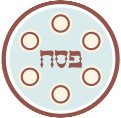
We have eaten our fill, and been satisfied. To eat more would be folly, despite the temptation of another helping -- if we ingest too much, we undo this seder's blessing of abundance. Now, with the afikomen, we put the Shulchan Orech (i.e. the meal) behind us, and make peace with the idea of limits.
The food we've eaten is fit for the festival because of its limited ingredients. We may desire chametz (that which is puffed-up), but we know tonight that it should not be on our table. The meal is made meaningful through its boundaries. On Pesach, we embrace necessary limits.
The matzah, broken earlier and tucked away, must be shared all around the table. The afikomen starts as less than a whole sheet, and gets further divided, yet we are happy with our portion; with it, we move on to blessings and songs and togetherness. Tzafun ends the meal with an echo of “dayenu”, an embrace of limits.
"One who tries to take too much, ultimately keeps nothing (tafasta meruba, lo tafasta)", teaches our tradition. Where are we attempting to hold onto more than we should?
This Pesach, let us learn to love living within the lines -- Green Lines, and other necessary boundaries. Let us embrace the spirit of dayenu. By ensuring “enough” for everyone, may our own abundance endure.
Submitted by Rabbi Barry Leff (2013)
To be read before Avadim Hayinu
Avadim Hayinu:
We were slaves to Pharaoh in Egypt.
The Mishnah tells us that we begin telling the Passover story with our disgrace. That we were
slaves.
Why? Why remember that we were slaves in Egypt?
So that we should remember, and not become oppressors ourselves.
Victims of abuse often become abusers themselves. The Torah commands us "No!" Don't be an abuser. 36 times the Torah tells us "do not oppress the stranger, for you were strangers in the land of Egypt."
Despite all those warnings, our national homeland, Israel, has become an oppressor to another people. Palestinians living in the West Bank do not have freedom of movement. Israel rules their lives with checkpoints, refusing to allow construction in Area C, subjecting them to arbitrary military law. They have no representation and no voice in the government that controls their lives.
Some Palestinians compare the Israeli Occupation to a Nazi regime. We know that's not true. We know that such a comparison is ignorant.
But what if they compare us to Pharaoh?
Pharaoh ruled over us with a harsh hand in Egypt. We must not do the same to others.
We were slaves to Pharaoh in Egypt. We must not become Pharaoh in Palestine.
Submitted by Rabbi Rachel Goldenberg (2012)
To be read just before dividing the middle matzah
Yachatz
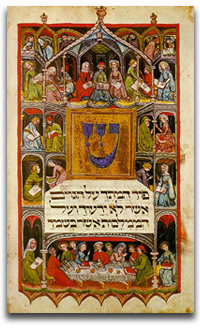
We now prepare to break the middle Matzah - this bread that carries conflicting interpretations - the bread of affliction and the bread of freedom.
As we divide the matzah into two uneven pieces, we remember our affliction.
On kibbutz, there were always a couple of old ladies who didn't eat much at the meal in the communal dining room, but who would line up afterwards to fill stacked containers with food to take home. They had survived the camps, places where if you come across a piece of bread, you do not eat it all at once. No - you take a little, and you save most of it for later.
Tears flow from the cracks in the matzah. As we divide the matzah into two uneven pieces, we remember our affliction.
But this matzah is also the bread of our freedom.
Today in the State of Israel our People have power. We have land, we have plenty. Yet, too often the tears of our affliction blind us to these realities. Israel grabs and settles territory out of fear that the enemy will return to decimate us. We are still victims.
As we break the matzah, we can break the habit of seeing ourselves as afflicted-ones. We can rise up from the degradation of occupation and eat our bread like free people!
Let's embrace the pshat (the simple, surface meaning) of the ritual of yachatz, to break our bread and share it with our neighbors. Let's divide the matzah, and take only what we need. We can let go of that wrapped-up piece, and we can let go of our fear, because we have faith that this is the only way to make it all whole again.
Submitted by Doug Mishkin (2011)
To be read (or sung) just prior to the Maggid.
Download a printer-friendly version.
Dr. David Arnow writes in My People's Passover Haggadah that, according to the Talmud, at the Red Sea
God chided Moses for praying excessively for divine intervention. Moses asked, "What should I be
doing?" God replied: "Lift up your rod and hold out your arm over the sea and split it." In other
words: get to work and do your part.
We live amid troubled seas of injustice. Whether in the struggle in the U.S. for civil rights for
African Americans (the original inspiration for this song), or for others who are oppressed here or
abroad, we know the answer to Moses' question. We must raise up our arms and make those waters part.
Doug Mishkin is a lawyer and a singer-songwriter who is a member of Temple Micah in Washington, D.C. His "Make Those Waters Part" appears on his album Woody's Children, as well as on Celebrate Passover and on Sing Out For Justice (produced by the Union for Reform Judaism).
Submitted by Rabbi Esther Lederman (2010)
To be read after the recitation of the Four Questions/Ma Nishtanah
Tonight, we ask four questions. Two remind us of our slavery at the hands of the Egyptians- Matza and Maror - the bread of our affliction and the bitterness of our tears. Two remind us of our liberty-- the dipping of foods and reclining in our chairs. Echoes of slavery and freedom mingle at our seder table. We recline upon our cushions as we lick the salty tears of our enslavement.
Tonight, we ask four questions that remind us of our bitter past and joyful present. But what about our future? It is time to ask a fifth question: What will redemption look like?
Israelis and Palestinians, hearing each other's stories, facing each other's truths. Israel and Palestine, two states for two peoples. Justice for both, Security for All. Peace for the People. The People for Peace.
What will redemption look like? An end to death and terror, An end to checkpoints and blockades. Liberty for Palestinians, Secure Borders for Israelis, A New Map for the Middle East.
V'im lo achshav, eimatay? And if not today, then when?
Tonight we ask four questions. But it is time to ask a fifth: What will redemption look like? Our children want to know... Pesach
Submitted by Rabbi Neil Comess-Daniels (2009)
To be read just before Elijah's Cup:
The prophet Isaiah did not see the Messiah as a person, but as a place called the Mountain of the Oneness-of-Being.
For Isaiah there would come a day when all nations would "flow to" that mountain, from many different directions, realizing that there exists a Unity that unites all people despite, even because of, their differences. For him, the Messiah was a presence, an era, a fresh, vibrant addition to our living that would glorify the cultures that human beings create, not dissolve them.
In our tradition, Elijah the Prophet will herald the Messiah, becoming our guide to the mountain. We set a place for him at our table symbolized by this cup. As we open the door to our room for what we hope will be the beginning of our journey to that summit, may we open our hearts to the idea that it is we who must travel to the Messiah, not the Messiah to us.
To be read for Next Year in Jerusalem:
The origins of the name Jerusalem elude those who pursue them. Some say the name derives from the Hebrew "Ir Shalom", city of peace. Certainly the city of Jerusalem of our own experience and our own world is not a city of peace. It has too often been a city of death and destruction, a city that has seen, too many times, the insanity and absurdity of war. Its heart is severed by an angry, monstrous barrier that provides quantitative security on one side and qualitative rage on the other.
To what, then, do we refer when we say, "next year in Jerusalem", at our Seder's end? We close our eyes and see, with the eyes of our small gift of living energy, the vision of a city built by actions and attitudes of peace, a city in which hatred and injustice die for lack of nourishment, a city whose influence will spread throughout the world. It is a Jerusalem that is yet to be, a Jerusalem of our dreams, our hopes and our strivings. May the message of this Seder inspire us to make the dream real.
Submitted by Rabbi Burton Visotzky (2008)
To be read at the pouring of the 4th cup:
Reject Hate, Embrace Hope, Recommit to Peace!
Traditionally, we fill this cup to welcome the Prophet Elijah, who heralds the start of the Messianic era. For centuries, we have recited Psalm 79:6-7: "Pour out Your wrath on the nations that do not know you and on the kingdoms that do not call upon Your name. They have devoured Jacob and made desolate his dwellings."
In the Middle Ages, Jews invoked this fantasy of divine retribution as a poultice for the wounds inflicted during our long history. This bitterness was understandable, if unproductive. Now we live in a time that we are ostensibly free, yet the nations who actually invoke God's name continue to desolate one another. God's Holy Land is riven by terror and revenge. Jacob's forbears, Isaac and Ishmael, remain gripped in the medieval mind-set. Despair makes us yearn for the arrival of Elijah.
We cannot bear to wait any longer. We cannot endure endless war. Elijah seems but a faint hope, not a solution. Tonight, we open the door to our neighbors, to dwelling with one another in quiet and shared delight. As we open the door we raise our fourth cup in a toast to the fresh breeze of renewed commitment, to the rejection of hate, to embracing hope, and to the hard work of making peace. And, we raise our glasses to life. We pray this "LeChaim," will bring us the longed-for redemption. Let this be the way we welcome Elijah
Submitted by Rabbi Melissa Weintraub (2007)
To be read at the time of Elijah's Cup:
Passover enjoins us to both hope and responsibility.
Do you still believe in the possibility of a peaceful resolution to the Israeli-Palestinian conflict? Do you live inside that hope - act from within that hope - with drive, determination, and faith that your hope will be redeemed?
Each year we reenact the capacity to break the bonds of slavery and to pass into a new and holy destiny. In this imagined crossing from bondage to redemption, we recall 2000 years of persecution and survival. We recall Israel's rise from the ashes of the Holocaust - for many contemporary Jews, the consummate Exodus from Egypt.
Within a century, our people erected impressive institutions of state in the wake of near total decimation - transformed nightmare atrocity into the realization of an ancient dream - a marvel even for the most dubious and critical among us of the nation-building project. And yet how many of us, wherever we stand politically, have given up hope of transforming Israel's impasse with its neighbors?
It is Passover, and it is time to renew our hope. It is time to live inside our hope - and to act from within that hope, accepting agency and responsibility for our capacity to pass into a new destiny, to relinquish the self-defeating narratives and actions that keep us mired in stalemate bondage.
As we open the door for Elijah - to our potential, to the latent possibilities of our future - let us take a moment to tap into our passionate hope that there is a way forward, and it is up to us to step towards it.
Let us recall our hope when we were most hopeful, our trust when we were most trustful in the other and in ourselves. Let us imagine a better situation and us as the agents to actualize it. What will you do in the coming year to act from within that hope? What will you try that you have not yet tried? Who will you talk to that you have not yet talked to? Who will you seek anew to hear and understand? What will you hope for, and what will you undertake?
Submitted by Rabbi Andrew Bachman (2006)
To be read before the dipping of the Karpas:
On this night we sanctify our Freedom with food and drink and community.
We recall stories of struggle and redemption, reminding ourselves of the shackles that bind us while daring to dream of what new horizons of liberation await.
Each taste on the plate bears more than one message, sings in more than one voice, challenges us with more than one demand.
In this moment of Ultimate Responsibility for our Story of Freedom, we consider the Karpas, symbol of spring and rebirth. Our rabbis taught that Karpas was a hint to the Ketonet Pasim, the Many Colored Tunic that Joseph wore but was dipped in blood in his staged murder by his brothers when Joseph was sold into Egyptian bondage. Jealousy and Hatred among Brothers, the rabbis taught, led to our enslavement as a people.
So as we dip this Karpas, this Parsley of Spring and Hope, into the Bitter Tears of Slavery, we rededicate ourselves to the eradication of both the internal strife among our brothers and sisters in the Jewish people as well as the external hatreds and differences that impede the road to Justice for all people everywhere.
May we echo the Psalmist and say with a full heart and soul: Those who sow in tears will reap in joy.
This year we are slaves to the world's injustices; next year may we be free.
Submitted by Rabbi Sharon Brous, Pesach (2005)
To be read before Urhatz:
A Kavannah, A Word of Intention: Thresholds
One of the first rites of the Seder is urhatz, the ritual washing of hands.
We stand at a threshold in the evening. We are about to tell the story that reignites our imagination that the world can look different than it does - that every single human being can live with dignity and honor, that peace, justice and freedom can be realized, that prayers can be heard and hearts healed. Before we can truly hear this story, we must transition from the mundane and the cynical of our work lives to the holy and the hopeful of the holiday. The signpost of our transition is a symbolic hand washing.
Similarly, this Passover we find ourselves in a threshold moment. Like the first signs of spring after a long, dark winter, we finally face the prospect of real peace between Israelis and Palestinians.
How will we find the courage and faith to work to make the dream a reality? We must first wash away our bitterness and our suspicion, our narrow-mindedness and our doubt, until we are prepared to embrace the profound possibility of shalom.
Unlike nearly every other element of the Seder, this washing is unaccompanied by a blessing, perhaps because the washing, itself, is a blessing.
Submitted by Rabbi Douglas Krantz (2003)
To be read after Yachatz:
Our mothers and fathers ate the bread of affliction every day when our ancestors were in Egypt. Tonight we gather around tables filled with the bounty of food, and the warmth of love, and endeavor to see ourselves as if we ourselves went forth from Egypt, with minds and bodies nurtured only on the bread of affliction.
We are aware of Israelis who hunger for security, who are afflicted with terror, and who yearn for acceptance in our world as a people of a nation with a sacred mission.
We are aware of Palestinians afflicted with poverty, who desire nothing more than to raise their families in an independent state, free of the burden of occupation, and able to build a future of their own choosing.
Only peace can feed the souls and salve the wounds of Israelis and Palestinians today.
Only peace can offer sustenance to two peoples struggling side by side, afflicted with anger, burdened with pain.
Only peace -- peace now -- can allow our brothers and sisters to escape the bondage of their violence.
When they are vulnerable, we are vulnerable.
When they are insecure, we are insecure.
For us to see ourselves as if we went forth from Egypt means to recognize that all of God's children hunger for justice, hunger to be free from the bonds of conflict that oppress the human spirit, and hunger to celebrate life with love and hope, bread and peace.
Submitted by Rabbi J. Rolando Matalon (2002)
May be recited at the end of the time of Elijah's Cup or at the end of the seder:
Mekor HaHayyim, Oseh HaShalom,
O God, Source of Life, Creator of Peace,
In this hour of horror and destruction,
Of panic and fear,
Send Your consolation to the mourners,
Your healing to the wounded,
And Your courage and patience to the Israeli and Palestinian peoples
So that they may withstand these dreadful moments.
Help Your creatures, anguished and confused,
To understand the futility of hatred and violence
And grant them the ability to stretch across political, religious and national boundaries
So they may resume the search for justice, peace and truth.
On this Festival of our Liberation,
Help us to free ourselves from the straits of narrow-mindedness,
From the prejudices and patterns of behavior
That keep us chained in an endless circle of victims and victimizers.
Help us to free ourselves,
By freeing each other, from the need to inflict suffering and pain.
May all Your creatures be guided by the vision of Your prophets:
"Venatati shalom ba-aretz ushekhavtem ve-ein mahrid,
I will bring peace to the land and you shall lie down and no one shall terrify you."
"Let love and justice flow like a mighty stream
Let peace fill the earth as the waters fill the sea."
With every fiber of our being we beg You, O God,
To help us not to fail nor falter in the path of peace.
Amen
Submitted by Rabbi Mordechai Liebling (2001)
To be read after Avadeem Hayinu L'Pharaoh:
Once again the B'nai Yisrael - the people Israel - have a Pharoah, one that this time they share with the Palestinians. This is a Pharoah of the heart and mind, the Pharoah of dehumanization, distrust and despair. And once again God's help is needed to attain freedom. The mighty arm that lays seige to a village and the outstretched hand that throws a terrorist bomb are the tools of Pharoah and not of God. God acts through stretching our minds to hear the other and opening our hearts to understand the other. Tonight is a night of story telling. The freedom of the Israelis and Palestinians, both the children of Abraham, will come more quickly if we can learn to tell each other's stories in addition to our own.
![]()

Each year at the Seder, Jews read this line in the Passover Haggadah, "In every generation, a person is obligated to see themselves as if they had left Egypt." This concept reminds us that each year we must approach the haggada with a fresh eye. It demands that we not merely read the words, but understand them afresh. We must both have empathy for what our forefathers and mothers have suffered, and – more importantly – be aware that change is possible, that we are masters of our fate, and that with determination and courage we can accomplish liberation. In our generation, liberating Israelis and Palestinians from the yoke of the occupation, which is subjugating both societies, is imperative. And it is within our reach.
This year, you can add flavor to your seder by sharing this thoughtful reflection by Rabbi Marisa Elana James. Rabbi James has graciously contributed our 17th haggadah insert. In it, she asks us to reflect upon what questions we want to ask this year, and how we want to make sure that we're not just getting stuck in what we think we already know.
Since 2001, Americans for Peace Now has asked rabbis from the extended APN family to contribute reflections on the haggada: that story which has for centuries been understood as the archetype of liberation. Many of us have made these reflections a permanent part of our seder - we hope you will, too.You can find them here.
May we all enjoy a sweet and liberating Passover,

Debra DeLee
President and CEO,
Americans for Peace Now
Submitted by Rabbi Marisa Elana James (2017)
To be read after the four children.

Each year at the Seder, Jews read this line in the Passover Haggadah, "In every generation, a person is obligated to see themselves as if they had left Egypt." I love this concept, because it evokes both empathy for what our forefathers and mothers have suffered, and – more importantly – a lesson for us, for our present and future. The lesson is that change is possible, that we are masters of our fate, and that with determination and courage we can accomplish liberation. In our generation, liberating Israelis and Palestinians from the yoke of the occupation, which is subjugating both societies, is imperative. And it is within our reach.
This year, you can add flavor to your seder by sharing this thoughtful reflection by Rabbi Michael Feshbach. Rabbi Feshbach has graciously contributed our 16th haggadah insert. In it, he asks us to reflect upon what Elijah's cup - the symbol of full redemption - means.
Since 2001, Americans for Peace Now has asked rabbis from the extended APN family to contribute reflections on the haggada: that story which has for centuries been understood as the archetype of liberation. Many of us have made these reflections a permanent part of our seder - we hope you will, too.You can find them here.
May we all enjoy a sweet and liberating Passover,

Debra DeLee
President and CEO,
Americans for Peace Now
Submitted by Rabbi Michael L. Feshbach (2016)
To be recited as we prepare to open the door for Elijah.

Each year at Passover, Jews read this line in the haggadah, "In every generation a person is obligated to see themselves as if they had left Egypt." Why? Because each of us should understand that in our generation, just as in our ancestors' generation, the status quo is not inevitable. Societies founded on inequality, on domination of others, on ruling those who do not wish to be ruled cannot, in the arc of history, last. In every generation there is a wrong to be righted. Today, it is in our hands to right it.
This year, you can add flavor to your seder by sharing this thoughtful reflection by Rabbi Toba Spitzer. Rabbi Spitzer, who is the recipient of Americans for Peace Now’s 2015 Elizabeth Wyner Mark Peace Award, has graciously contributed our 14th haggadah insert. In it, she reminds us of the costs for freedom, and asks us to make an honest reckoning, an acknowledgment, and perhaps a commitment to make some kind of repair to those who are affected by the privileges we enjoy.
Since 2001, Americans for Peace Now has asked rabbis from the extended APN family to contribute reflections on the haggadah: that story which has for centuries been understood as the archetype of liberation. Many of us have made these reflections a permanent part of our seder - we hope you will, too. You can find them here.
May we all enjoy a sweet and liberating Passover,

Debra DeLee
President and CEO,
Americans for Peace Now
Submitted by Rabbi Toba Spitzer (2015)
Rabbi Spitzer is recipient of Americans for Peace Now’s 2015 Elizabeth Wyner Mark Peace Award
To be read just before the recitation of the ten plagues.

Each year at Passover, Jews read this line in the haggadah, "In every generation a person is obligated to see themselves as if they had left Egypt." Why? Because each of us should understand that in our generation, just as in our ancestors' generation, the status quo is not inevitable. Societies founded on inequality, on domination of others, on ruling those who do not wish to be ruled cannot, in the arc of history, last. In every generation there is a wrong to be righted. Today, it is in our hands to right it.
This year, you can add flavor to your seder by sharing this thoughtful reflection by Rabbi Fred Scherlinder Dobb. Rabbi Dobb, who has written previously for Americans for Peace Now, has graciously contributed our 13th haggadah insert. In it, he asks us to make peace with the idea of limits.
Since 2001, Americans for Peace Now has asked rabbis from the extended APN family to contribute reflections on the haggada: that story which has for centuries been understood as the archetype of liberation. Many of us have made these reflections a permanent part of our seder - we hope you will, too. You can find them here.
May we all enjoy a sweet and liberating Passover,

Debra DeLee
President and CEO,
Americans for Peace Now
Submitted by Rabbi Fred Scherlinder Dobb (2014)
To be read after the meal, just before the search for the afikomen. (Tzafun)
